

Hunters Point, Long Island City is a rapidly changing neighborhood flanking the East River on its eastern bank. Neighborhood history is reflected the design of the neighborhood’s architecture, ranging from primarily industrial uses, heavy rail and freight, to its future of luxury condominiums. Atlas Obscura partnered with the Newtown Creek Alliance to craft a walking tour focused on the modernity of Long Island City’s main corridor, while highlighting its industrial roots.
The tour began at Albert E. Short Triangle Park, just outside of the Court Square subway station. Mitch Waxman, the Newtown Creek Alliance’s historian, served as our tour guide. The group first ventured southeast on Jackson Avenue towards 5Pointz Aerosol Art Center, a world renowned graffiti exhibition. Contrary to standard graffiti practice, aerosol artists at 5Pointz are required to submit a portfolio of their finest work and are selected to create their works of art upon the 200,000 square foot building. With the latest news that Queens Borough President supports demolition, it is unlikely 5Pointz will remain here in the future.
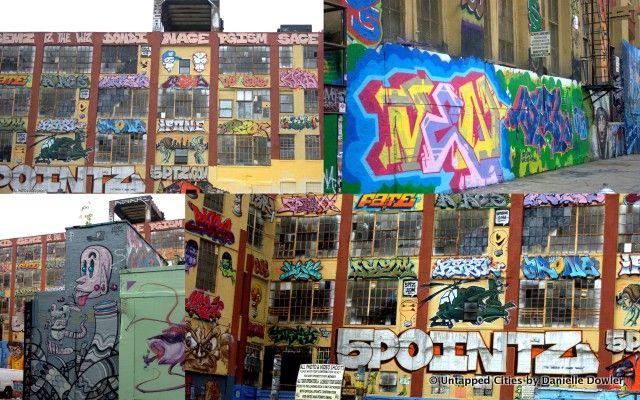
5Pointz Aerosol Art Center
Waxman explained that Long Island City is well-known for its artist culture, and associated art industries. Continuing along Jackson Avenue, he pointed out MoMA PS1. Originally a public school with detailing by the New York Terra Cotta Company, the building became the Institute for Art and Urban Resources, founded by Alanna Heiss. In 2000, MoMA and Heiss solidified their relationship, thus expanding their reach to the outer borough of Queens.
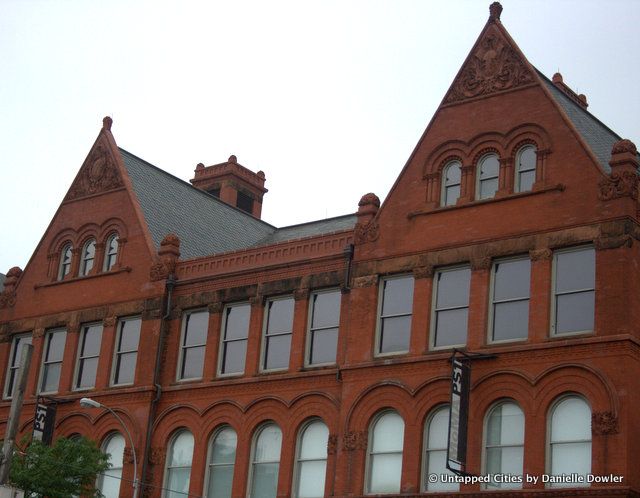
MoMA PS1
Just north of Jackson Avenue, Waxman led us through streets of single story row houses preserved in time due to the 1961 New York City zoning ordinance. Turning left on Vernon Boulevard, Waxman explained the significance of Hunter’s Point commercial corridor that has lasted through time. Twenty-five years ago, the neighborhood was primarily industrial. It has since been conquered by the influx of residential high rise towers and the demand for proximate waterfront living.
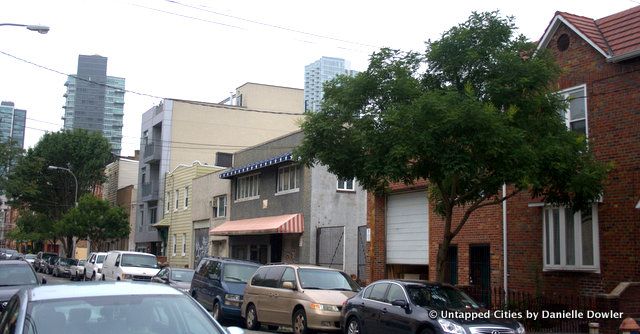
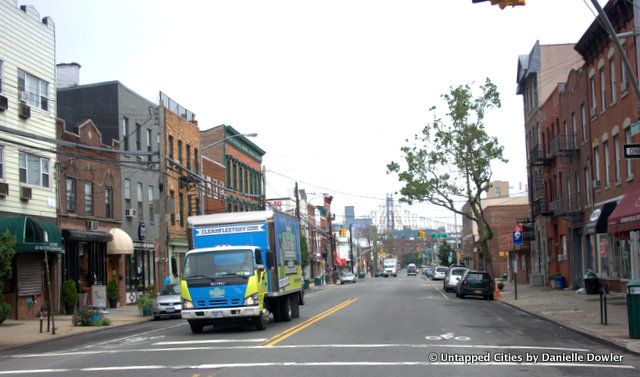
Row Houses and Vernon Blvd.
Waxman proclaims his excitement as he guides us towards Gantry Plaza State Park. Although the structures in the park are actually transfer bridges, the park harnesses the beauty of the once-used rail infrastructure, which facilitated the movement of rail cars onto barges for maritime travel to Manhattan. The well manicured park abuts the East River on the west and is bounded by large silver towers on the east.
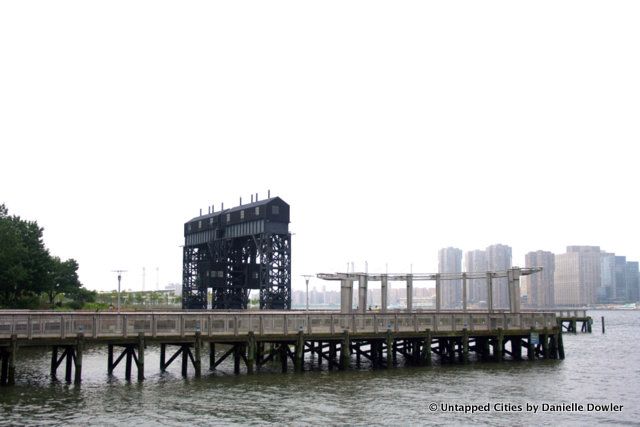
Gantry Plaza State Park
We saunter farther south to see the beginnings of the new development of Hunters Point South. Waxman paints a picture of shimmering mirrored buildings that will allow Manhattanites to reflect upon themselves while looking to the outer borough of Queens. The development is situated on a thirty acre site, promising 5,000 new residential units and 20,000 square feet of retail space.
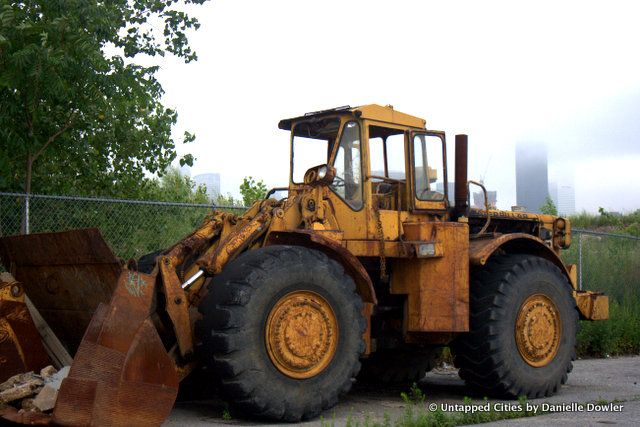
A tractor, rusted by Hurricane Sandy waters near Hunters Point South development
The group then traveled east, along Newtown Creek, marveling at some noticeable damage caused by Hurricane Sandy. Newtown Creek acts as a divide between Hunters Point, Long Island City and Greenpoint, Brooklyn. Home to former sugar refineries, cargo docks and rail houses, the heavily polluted waterway is also one of the most frequently used bodies of water in New York City.
Newtown Creek was designated as a superfund site in 2010, thus putting some focus on the environmental impact of significant raw sewage and industrial wastewater collection in the area.
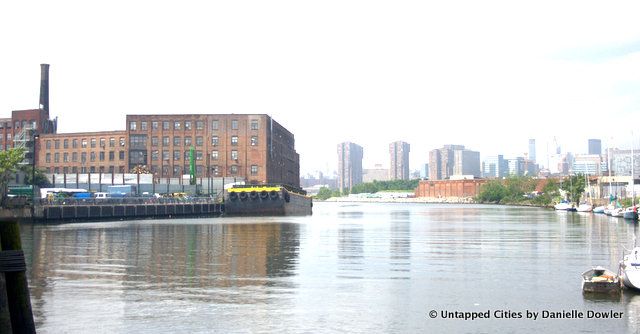
Newtown Creek
The tour touched on important historical events in order to provide context for the current snapshot of Hunters Point, Long Island City and its future. The neighborhood combines varying facets and by walking through its physical form, tour goers were able to not only witness how different political agendas transformed the landscape, but how future developments will continue to morph Hunters Point, Long Island City for years to come.

